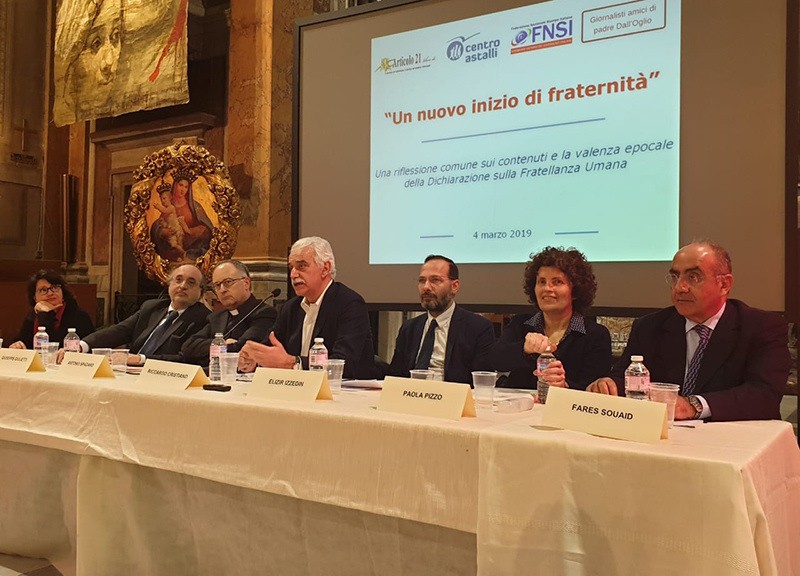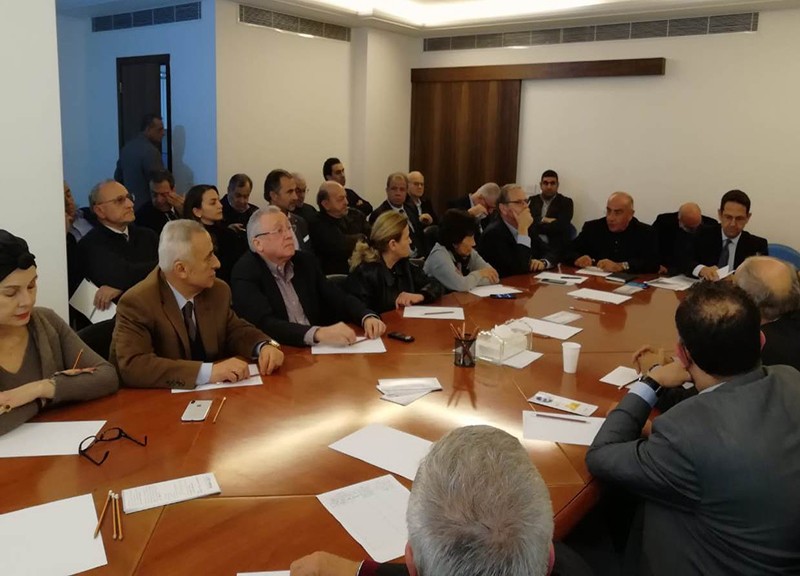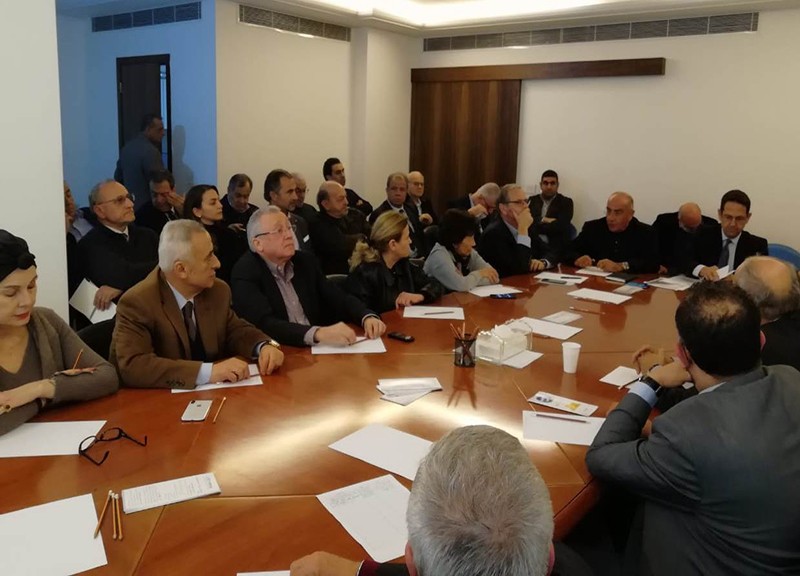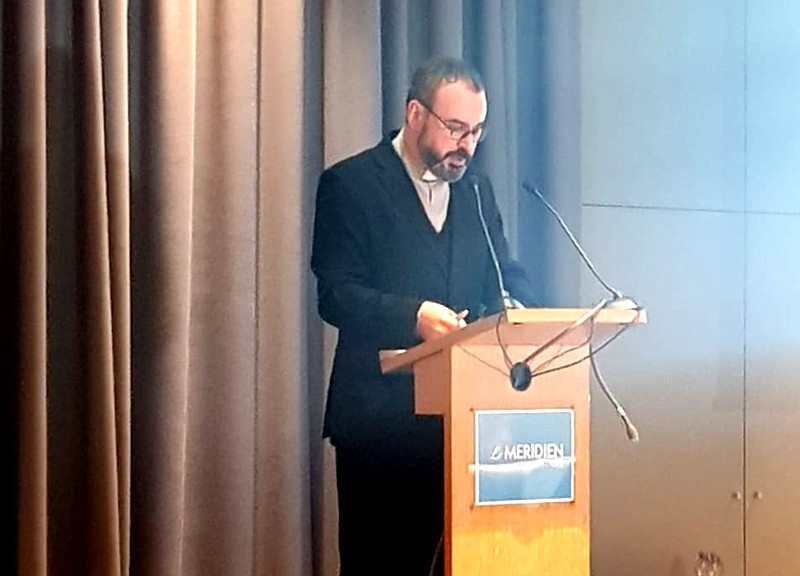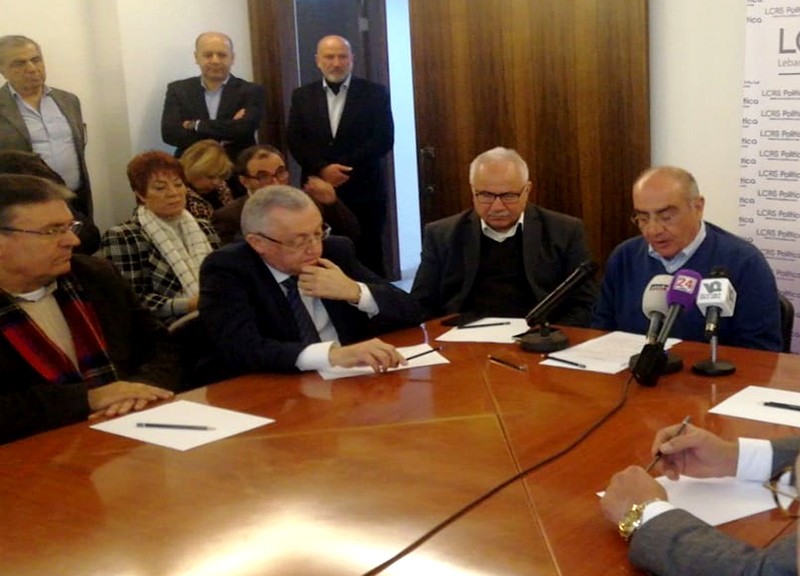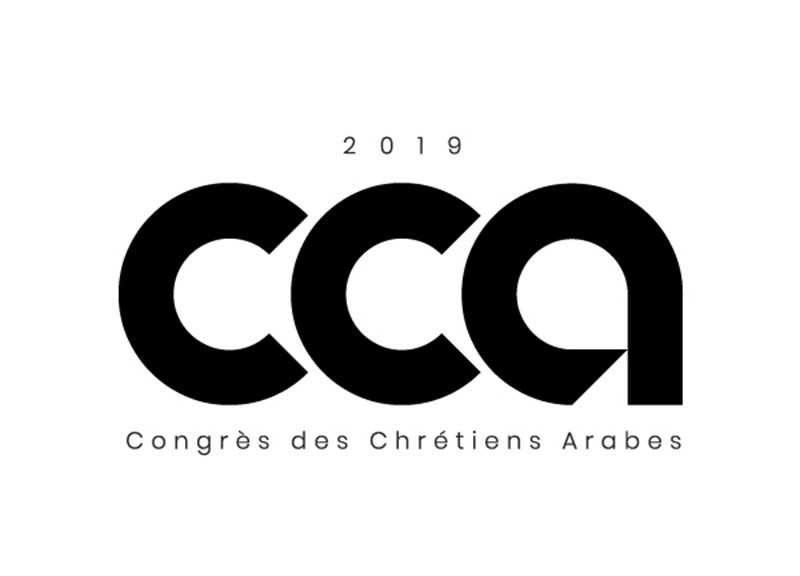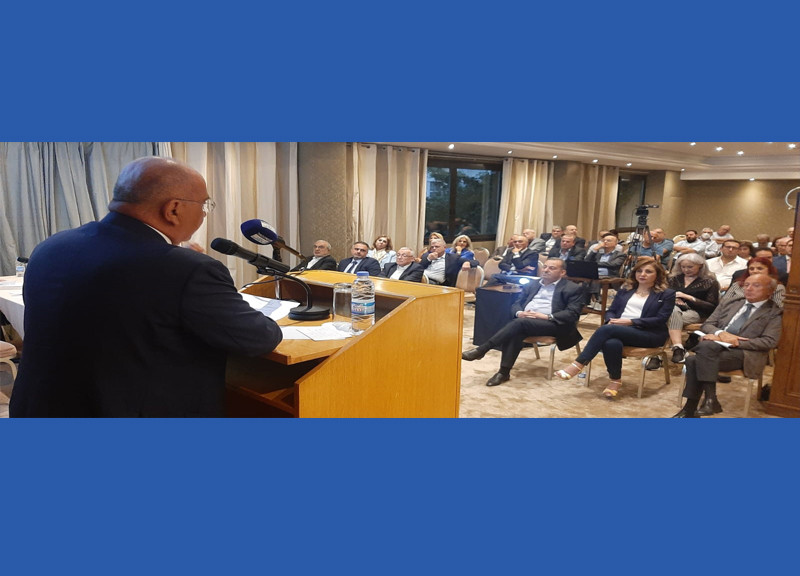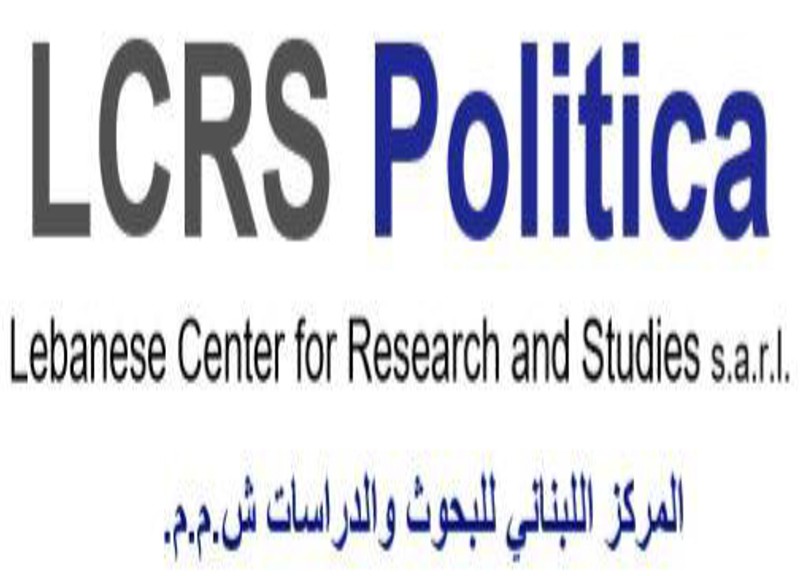
Ladies and gentlemen,
The Lebanese Center for Research and Studies LCRS Politica has the honor to conduct a dialogue and discussion session on its political / economic paper entitled:
"The political roots of the economic crisis."
---------------------------------------------
The dialogue will be conducted by Sam Menassa
On Monday, June 29, 2020
At four in the afternoon
In his offices in Achrafieh, Georges Tabet Street, Njeim Building ACH 366 first floor.
The paper exposes the political roots of the financial and economic crisis in Lebanon, given that the country is currently witnessing a new chapter of ongoing "coup" on the historical political and economic gains of the Lebanese Republic.
This paper also sees that the only solution to Lebanon current starts with an immediate implementation of the Taif Agreement, the Arab legitimacy and the International resolutions and treaties.
xxxxxxxxxxxxxxxxxxxxxxx
Preamble
Lebanon is under an existential threat. This danger is exhibited by and Iranian Anschluss that started with a two-pronged ‘veiled’ coup (the election of Pres. Michel Aoun in 2016 and, the rigged electoral law of 2017), preceded by a tight control over National Security (Army, Internal Security Forces, General Security); and is now being followed by a staged takeover of the economic nerve system of Lebanon, represented by the banking sector. The loop will be closed with such ‘last mile’ of the Iranian takeover that touches on the economic system, as the profile of Lebanon could be forever transformed from a liberal, free-enterprising, and forward-looking society into a repressive, State-controlled and inward-looking & isolated nation.
Our role, as a society made up of different political factions, social groups, professional backgrounds, religious beliefs and other pluralistic currents, is to resist such onslaught on our principles and properties and to fight back to free Lebanon from such yoke. The question is not one of political differences or a debate between separate parties, or religious groups & factions, but one of survival of a Lebanon that we know and want. A Lebanon that can preserve the freedom of individuals as equal citizens in a State of Law and Justice, as stipulated in Lebanese Constitution, especially in paragraph (f) of its preamble, which states: “The economic system is free and ensures private initiative and the right of private property”.
Political Context
The overthrow of Saddam Hussein regime in Iraq, gave Iran a golden opportunity to push forward its expansionist project in the region. The assassination of Prime Minister Rafic Hariri in 2005 in Beirut ushered in a new phase in Lebanon that of Iran expanding its dominance over the “Land of Cedars”, capitalizing on Syria’s fading long standing-influence established through its military presence on its soil since 1976. However, the Israeli withdrawal from southern Lebanon in May 2000, and the death of Syrian president Hafez al Assad in June of the same year, created a new political reality in Beirut, emboldening the opponents of the Syrian presence to establish an upward political dynamic with the aim of lobbying the domestic, Arab and international communities against this presence. In April 2005 and two months after the assassination of PM Hariri, this dynamic succeeded into forcing Syria to fully pull out its troops from Lebanon.
Instantly, the Islamic Republic grabbed this break to fill the vacuum left by Damascus, starting with a provoked armed conflict with Israel in 2006, that ended by rooting its hegemony over Lebanon. The 2006 war created a ‘reality on the ground’ where the Iranian-backed militia of Hezbollah unilaterally started military actions against the Israeli army beyond Lebanese borders and self-proclaimed itself the sole decision maker in Peace and war with Israel neglecting in this strategic and game changer decision to discuss the matter with the legal and legitimate elected authorities of the country despite the immense consequences that such a decision has on the Lebanese people, his security ad his economy.
With the help and support of Iran and Syria which formed the so-called axis of resistance, Hezbollah thwarted all the attempts by the official Lebanese State to restore its authority and legitimacy, in coordination with the Arab countries and the international community. The international community strived to ease Iran’s dominance over Lebanon by issuing U.N. Security Council resolutions 1559, 1680, 1701,1757, & related others. Yet, despite this international dynamic towards Lebanon, (Which compensated for the gradual slackening of the domestic front against Iran), the State of Lebanon, and its economy have been forcibly distanced from the international community and the norms that regulate relations between States, and started to drift slowly but surely, into the circle of rogue nations and black-listed economies. The repeated disregard and blatant violations of the U.N. Security Council resolutions by Iran and its militia, have caused serious damages to Lebanon’s already frail standing and authority, and have negatively impacted its economy and the welfare of its population as the present crisis is proving without a shadow of doubt.
The gradual and persistent expansion policy by Iran’s militia including, the repeated assassinations of political opponents, carrying out armed attacks on opposition strongholds as occurred on May 7, 2008, the phased takeover of the State’s powers, the paralysis of all political life via the lockdown of Parliament for many years, leaving the state without a budget for ten years and preventing the Parliament from fulfilling its legislative role, especially in terms of enacting reform laws. these practices have brought the opposition to its knees, literally, and coerced its leaders -in a moment of political despair and cowardice- into accepting Iran’s choice for President of the Republic (2016), and Iran’s design for an Electoral Law (2017). These two last actions have sealed Iran’s total control over the political system of Lebanon and consequently seriously damaged the country’s economy by antagonizing the historical economical partners of Lebanon.
Prior to such political coup, the Iranian militia had infiltrated every key position, and every relevant role in the LAF. Furthermore, with its asymmetrical balance of power (in terms of tactical and strategic arms that enter the country unchecked, and the number of irregular fighters it can command from Lebanon and Iraq/Iran, if need be. this militia has become the de facto LAF, the de facto national police force, and the de facto intelligence services. All points of entry via land, sea and air, all legal and illegal activities, all armed and civilian activities are watched, monitored and overseen by this militia.
Economic Reality
The next target for the Iranian Anschluss was naturally the banking system, which represents the epicenter of Lebanon’s economy. The banking system in Lebanon is one of the largest national employers (almost 26.000 employees), the largest holder of national savings and; most importantly, it constitutes the single source of financing for large, mid-sized and small corporations in the absence of a vibrant stock market, or a viable venture capital market or any other forms or sources of institutional funding. Not to mention that the growth of the banking sector has constituted a staple of salvation for the volatile state, as it was able to borrow from the Lebanese banks which succeeded in attracting more capital due to the increased confidence of depositors.
At the outset, one must state that taking any arbitrary action against the banking system (i.e., without due process) because it discharges the political class from any accountability for its excessive public indebtedness, is akin to absolving the political class and its ‘protector’ namely, Hezbollah, from any responsibility while throwing the whole economy of Lebanon into chaos, and people’s credits and savings into oblivion.
Today, Iran and its militia, who are: (i) under economic sanctions by the US, and (ii) in a state of undeclared war with most of the GCC countries save Qatar, (iii) involved in civil wars in Yemen, Iraq, and Syria, (iv) listed as terrorists by the US, the UK, Germany, the Netherlands, the UAE and Saudi to name but a few; and (v) finally, as far as Lebanon is particularity concerned are accused of planning & executing the assassination of PM Hariri in 2005 by the SPECIAL TRIBUNAL FOR LEBANON AT THE HAGUE, these same parties whose actions are well noted above, are planning & executing the takeover of the banking system in Lebanon.
Since 2006, this almighty militia has stamped its iron will on the political and security arenas of Lebanon. Now it is time, it seems, for it to move into the economic field and to control it.
Everyone is aware that the provision of any financial aid or loans to the Lebanese state will not be accessible before implementing the basic reforms related to the public budgeting and the expenditure of public funds. Since 2011, that is, since the outbreak of Syrian war and the concomitant deterioration in the Lebanese economy, the donor countries have repeatedly linked any grants to the state instigating the long-awaited political and structural reforms in public administration and finance. Nevertheless, none of these fundamental reforms saw the light of the day. Is this just a coincidence?
Owing to the ruling class failure to implement these reforms, the credibility of Lebanon reached its nadir. The capital flows have all but stopped from reaching its banking sector, the oil that greases the wheel of corruption and public debt in Lebanon came to a grinding halt! So, what did the political class while bowing to the Iranian militia guidance? Instead of taking responsibility for its actions over decades, instead of attempting to hatch a solution with the banks that would have brought a gradual relief to the State, the economy and the depositors, pushed by the armed militia this political class has pointed at the banks and bankers as the culprits, and thrown them to the street to feed the legitimate anger of the people who felt defrauded of their life’s savings which are stuck in bank deposits and eaten out by the galloping devaluation of the national currency.
The above leads to one conclusion: Amid the contribution of Hezbollah and its coverage, the ruling class has deliberately refrained from implementing the required reforms, as their instigation would guarantee the restoration of international confidence in Lebanon and thus the preservation of the free economic system provided for in paragraph (f) of the constitution. Whereas, Hezbollah and its allies’ aim is to setback the free economic system and replace it with an alternative auto-controlled economic model through which the armed militia could establish a loyal political and economic network to support its hegemony over the country’s political and security arena.
Conclusion
In 2016, the presidential deal enshrined a new equation that saw bartering sovereignty for positions: The armed militia took over the sovereignty, while its accomplices among politicians who were eager to benefit from the corruption network that has reigned over the state, enjoyed positions. This has and continues to cause serious imbalances within the ruling class’ political and economic performance, imbalances that have been exacerbated by the state’s adoption of a foreign policy in conflict with Lebanon’s political and economic interests. Herein rely the root causes of the unprecedented financial and economic crisis in the history of the “Land of Cedars”, potentially leading to a dangerous social and security explosion, especially with the percentage of the poor among the Lebanese reaching the threshold of 50%. As such, political and economic realities have become interrelated, and therefore any attempt to reach a viable solution for the current economic and financial crisis without tackling the crippled political situation is to no avail. Here are few key findings:
The violation of the UN Security Council Resolutions is a prime cause for a destabilization of Lebanon, for its distancing from the world’s community in an hour of need (including the IMF), and a grave infraction of international rules and regulations that firmly lodges Lebanon onto the list of pariah nations.
- The disrespect of the recommendations of the Arab League in terms of non-interference in neighboring affairs, in regional conflicts, and in maintaining a cordial entente between Lebanon and its natural Arab environment, all lead to Lebanon’s isolation from its vital strategic milieu and inevitably to alliances and axes in deep contradiction with the core nature of its political and economic and social systems.
- The non-application of the Taif Agreement in terms of adopting a foreign policy that disregards Lebanon’s strategic environment as a country asserting its indisputable Arab identity as stipulated in the preamble of the constitution, as well as in terms of the legitimated armed forces’ failure to assert the sole Lebanese state sovereignty over all of its territory and oversee and protect its borders, cripples the proper functioning of the political and judicial and security institutions, breaks the social contract between the rulers and the ruled, and undermine the credibility of the State within the eyes of its own citizens who also happen to be its own taxpayers.
- The blatant attempt to vilify the banking system without the protection of laws or other proven, irrefutable & objective arguments, is only a prelude for the ruling class to interfere in the size, total number, capital and property of its institutions, to cause the government to default on its obligations and thus force the banks to face the demands of depositors without the financial means that this same government denies them, is not only a dereliction of authority, but a way to bend the will of the banking system and control the economy of Lebanon including, the ownership of its institutions, without resolving the public debt or securing the savings of the Lebanese.
Hezbollah’s Success in controlling by the power of weapons the state authority, hence the political security administrative decision making process along with the economic policy making by dismantling the banking sector, is just a prelude to restricting our personal freedom guaranteed by the constitution and converting the parliamentary republican system into a theocratic system under “wilayet al faqih” power.
Against this backdrop, all Lebanese patriots from all factions and professions must unite against this ruling class for rebuffing the provisions of the constitution, heartened by an armed party that disrespects our republican legacy along with the historic consensuses reached by the Lebanese people.
Consequently, the Lebanese patriots have no choice but to unite in order to confront a puppet ruling class dependent upon an outside power and tied to axes and alliances at odds with the country’s national interests, and therefore engulfing the country in a chain of political security and economic crisis seriously threatening the future of its people now eager to immigrate. Moreover, this ruling class strives to clampdown public freedoms, especially freedom of opinion and expression to mute all demands for an independent, sovereign state in control of its foreign and domestic policies, its territory and borders and asserting the right of its legitimate armed forces to solely bear arms. Likewise, the Lebanese have the right to request that the ruling class respects the principle of power separation and therefor the independence of the judiciary to endure the application of the rule of law without discrimination among citizens. It is also their duty to demand that it guarantee and safeguard individual property and comply will all international regional and local rules and regulations to which legitimate states are bound.
The current ruling class in its identification with Hezbollah’s policies which use the Lebanese state’s resources and assets to serve its regional relations system, has become a real threat to our parliamentary republican system and our free economic system. This dire situation calls for Lebanese patriots who are keen to preserve Lebanon pluralism and its unique model of coexistence in the region and worldwide, and to maintain its time-honored openness to the entire world, its cultures and civilizations, to jointly stand against Iran’s attempt to seize control of Lebanon and breed a hungry country alienated to the struggle of “deadly identities”.





